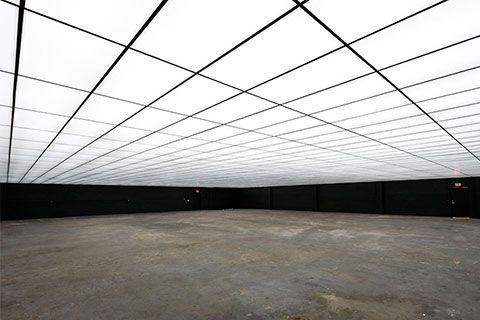Movie Job Index - a look at the best & worst paying jobs in the film industry

It’s well established that jobs in creative industries, such as in the film industry, are few and far between, plus extremely difficult to break into as a newbie. With this being such a perilous field of work, one might wonder which roles pay the best and where you should be located to have the best opportunity to make a stable living wage.
With that said, we looked at the highest paying roles, though we had to omit a few - such as directors and actors - as the variance and vast sums such roles receive would skew our findings. The roles we did look at are more “behind the scenes”, such as location manager whose job it is to find and book filming locations, foley artists who are responsible for enhancing audio effects for films and prop masters, responsible for all the props used in a film.
Without further ado, let’s get stuck in and see what the data from our experts at Giggster reveals about working within the film industry.
The best-paid jobs in the UK movie industry

1. Executive Producer
Average salary: £72,913
You can think of the executive producer as the person who sources funding. Their biggest responsibility is to ensure that there is enough funding to make the film, covering costs such as: hiring other members of the film crew, various sets and filming locations, costumes, and props too. There are various ways an executive producer can go about this, finance the film themselves, secure funding from a bank or film investment firm. However, if the studio pays for the film’s production costs, it then becomes the executive producer’s job to present the budget to the studio along with its projected profits to gain approval. With so much resting on this role, there’s no wonder it’s the highest paying role.
2. Prop Master
Average salary: £54,946
The title of this role is relatively self-explanatory, plus it just sounds cool - to be the master of one’s trade. Regardless, a prop master is completely responsible for all of the props needed, their acquisition and their safe use on set, as well as keeping within a set budget. With sets often being expansive and somewhat chaotic, a prop master typically hires a team consisting of prop makers and runners to assist in these endeavours, with the prop master reporting to the production designer. Oh, and as a bonus, prop masters are sometimes responsible for the care of animal actors, for all the animal lovers out there.
3. Art Director
Average salary: £45,145
A director of a film tends to have a creative vision of what the film will look like before filming even begins - the implementation of that vision, well that’s where the art director comes in. Working with the production designer, the art director oversees the creation of concept art which usually depicts what certain characters or locations within the film would look like. They also work very closely with the teams that build the sets, design props and art elements. A highly creative role, fit for problem solvers.
Rent a location for your next film or photo shoot project on Giggster – A better way to book locations.






The worst paid jobs in the UK movie industry

1. Prop Maker
Average salary: £18,561
It was a close call at the lower end of the spectrum, but prop maker is the worst paying film job based on an average of salaries across the UK. This is another self-explanatory role, as the prop maker is mostly responsible for the making of props. Aside from that, they are also in charge of organising and repairing props, as well as researching cultures and history, to make accurate props. A much more hands-on creative role, if that’s your thing.
2. Runner
Average salary: £18,574
The second-lowest, the unsung hero of any film set, the runner. Think of this as an assistant role, typically you’d work under the direction of the producer. The responsibilities of the role have a great deal of variance and are vast in volume. You’ll do everything from taking important messages and calls to basic administrative tasks, perhaps even deliver scripts to members of the cast. A super important role, one that calls for grit and flexibility.
3. Production Assistant
Average salary: £18,819
Ever wanted to be a director or producer’s assistant? To shadow and learn the trade from them? Well, becoming a production assistant is a pretty good way to go about it, though being an entry-level position, the pay isn’t mind-boggling. Coming in as our third lowest earning film career in the UK, production assistants have the responsibility of ensuring cast members get their costumes and makeup, announcing when shoots begin and end, identifying issues during shoots and reporting them to the director, as well as other errands for the director. It might not pay much, but working closely with a director could be beneficial down your career path.

The best-paid jobs in the US movie industry

1. Executive Producer
Average salary: $123,221
Just as for the UK ranking, the person behind all the money is the one who is paid the most in the US film industry. Stan Lee, who has been listed in the credits of many Marvel movies as an executive producer, is the highest-grossing in this role at the box office. Though, honestly, that should be of little surprise. But who knows, perhaps someday you too could make it to those lofty heights.
2. VFX Artist
Average salary: $78,639
Compared to the prior listing, this is a dramatic decrease in earnings - but it is an essential role in the filmmaking process, especially for all your favourite sci-fi and fantasy films. Think back to the Balrog in The Lord of the Rings: Fellowship of the Ring - that fantastical creature was brought to life almost entirely by the film’s VFX team. So, if you want to use visual effects to bring cool things to the big screen, you can be sure that it pays plenty.
3. Concept Artist
Average salary: $77,760
Coming in at third, concept artists, these are the people who draw up locations, characters, creatures. Drawing up concepts of these things helps inform other crew members to make casting choices, find filming locations and of course, assists VFX artists with their work. It’s a highly creative role, with the added flexibility of being able to work for a company/agency or if you wish, go at it freelance.
The worst paid jobs in the US movie industry

1. Runner
Average salary: $30, 897
Whilst it was close at the bottom for the UK ranking, the US was a bit more open - runners are ranked as the lowest paying job in the states. The secretary role of the film industry, lots of running errands and basic office tasks, entering data, filing paperwork and answering the phone. However, perhaps you’ll get to hand a script to a huge movie star, one can dream at least.
2. Production Assistant
Average salary: $37,959
It’s no surprise that production assistants come in at the lower end on this side of the pond, as an entry-level role in the industry. However, one might argue that working so closely with directors and producers, learning the trade is the perfect place for someone interested in film production to start. This is the most obvious path to those director-level big bucks.
3. Hair & Makeup Artists
Average salary: $42,877
At the third lowest salary in the film industry, we have hair and makeup artists, another title that is pretty self-explanatory. These are the people who - surprise - manage the hair and makeup of various cast members. Not necessarily to help them look their best, though, of course, we’re sure that’s of serious concern too. But the main priority is to help cast members properly and faithfully portray their characters in the film. This is yet another role where one can exercise a lot of their creativity.

Methodology -
We created a list of jobs in the film industry looking across various sites such as Prospects to find the behind-the-scenes roles.
Once the list was accrued, we used Glassdoor to discover the average salaries for each role in both the UK and the US.
Where the salaries were shown in [blank]/hr, we calculated their annual salary using a salary calculator.
At which point, we ranked the salaries for the entirety of the UK and US.
Wherever fewer than 10 salaries were submitted for job titles, we omitted these results to avoid skewed findings.

